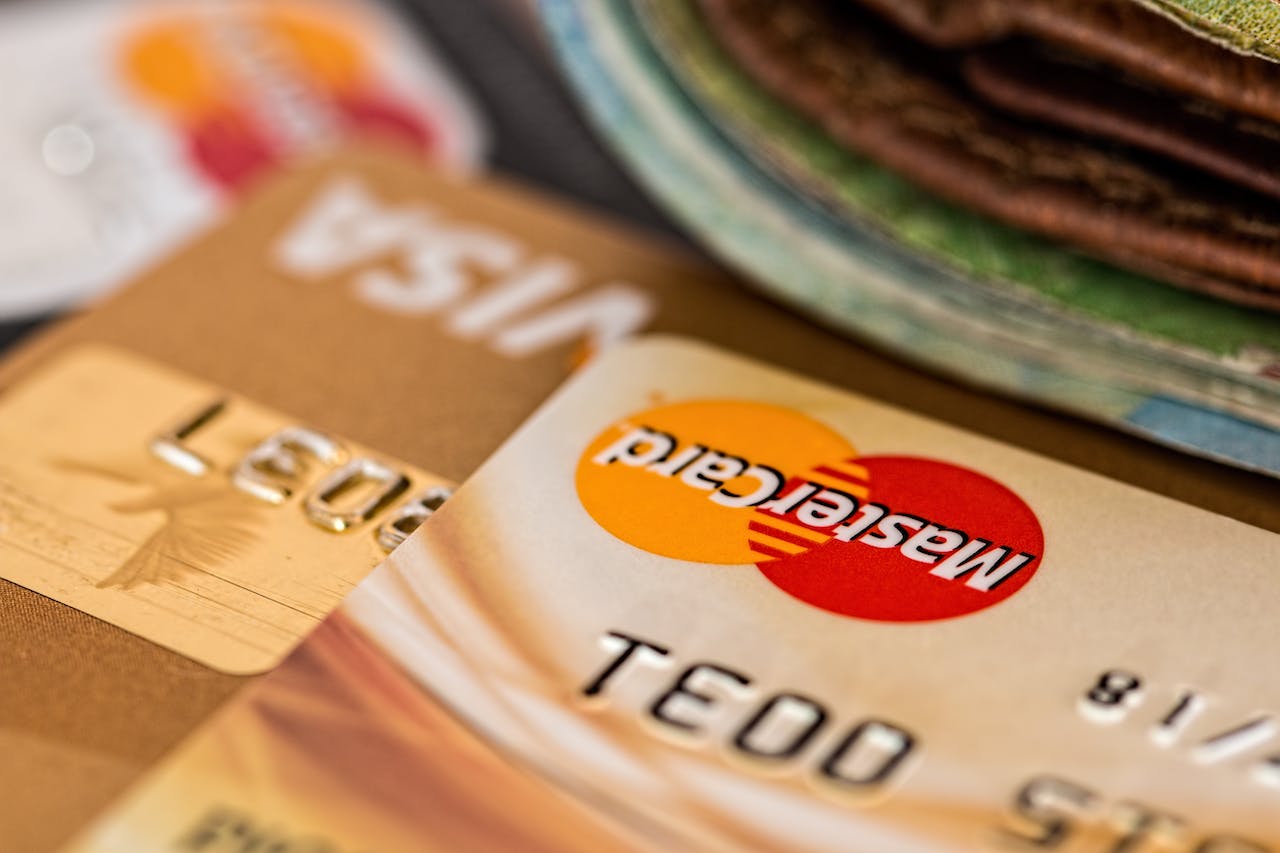If you are a Virginia taxpayer, you may be eligible for a one-time tax rebate of up to $400 this year. This is part of the state’s budget deal that aims to provide relief to Virginians amid rising inflation and high prices. But how do you know if you qualify for the rebate, and when can you expect to receive it? In this blog post, we will answer these questions and more, so you can plan your finances accordingly.
What Is the $400 Tax Rebate Virginia?
The $400 tax rebate in Virginia is a program that gives taxpayers with a tax liability a rebate of up to $200 for individual filers and up to $400 for joint filers. The rebate is funded by the state’s surplus revenue, which exceeded projections by $2.6 billion in fiscal year 2022. The rebate is intended to help Virginians cope with the economic challenges caused by the COVID-19 pandemic and the policies of the federal government.
Who Is Eligible for the $400 Tax Rebate Virginia?
Not every taxpayer is eligible for the $400 tax rebate in Virginia. To qualify, you must meet the following criteria:
- You must have filed your 2022 individual income tax return by November 1, 2023.
- You must have had a tax liability for the 2022 tax year. Tax liability is the amount of tax you owe throughout the year minus any credits, deductions, or subtractions. If you had no tax liability or received a refund, you are not eligible for the rebate.
- You must not owe money to Virginia Tax or other state or local agencies or institutions. If you do, your rebate may be reduced or withheld to satisfy your debt.
You can check your eligibility for the rebate using the rebate lookup tool on the Virginia Tax website. You will need to enter your social security number and the amount of your expected or actual refund. The tool will tell you if you are eligible for the rebate, and if so, how much you will receive.
When Will You Receive the $400 Tax Rebate Virginia?
The Virginia Tax Department will issue the rebates in the order that taxpayers file their returns. If you filed your taxes before July 1, 2023, you should receive your rebate by November 30, 2023. However, most rebates will be issued by early November. If you filed your taxes between July 1 and November 1, you should receive your rebate within four months of your file date.
How Will You Receive the $400 Tax Rebate Virginia?
The method of payment for the rebate depends on how you received your refund for the 2022 tax year. If you received your refund by direct deposit, you will likely receive your rebate by direct deposit in the same bank account. If you received your refund by paper check, or if you owed money or did not receive a refund, you will receive your rebate by paper check in the mail.
If you receive your rebate by direct deposit, look for the description “VA DEPT TAXATION VATXREBATE” on your bank statement. If you receive your rebate by paper check, look for an envelope from the Commonwealth of Virginia, Department of Taxation.
If you have moved in the last year and have a current forwarding order with the USPS, your check will be forwarded to your new address. If the bank account where you received your refund by direct deposit is closed or otherwise unavailable, you will receive your rebate by paper check in the mail.
How Is the $400 Tax Rebate Virginia Different from Other Tax Refunds?
The $400 tax rebate Virginia is different from the regular tax refunds that you may receive from the state or the federal government. A tax refund is the amount of money that you overpaid in taxes throughout the year, based on your income, deductions, credits, and withholdings. A tax rebate is a one-time payment that is given to you by the government, based on your tax liability, regardless of how much you paid or withheld in taxes.
The $400 tax rebate Virginia is also different from the stimulus checks that were issued by the federal government in 2020 and 2021. The stimulus checks were part of the Coronavirus Aid, Relief, and Economic Security (CARES) Act and the American Rescue Plan Act, which were designed to provide economic relief to individuals and businesses affected by the COVID-19 pandemic. The stimulus checks were based on your adjusted gross income, filing status, and number of dependents, and were not affected by your tax liability or refund.
How Does Virginia’s Tax Refund System Operate?
Virginia’s tax refund system operates by processing the tax returns that taxpayers file every year and issuing refunds or collecting payments based on the difference between the tax owed and the tax paid. The state uses electronic and paper methods to receive and process tax returns and to issue refunds or collect payments.
The state also uses a refund offset program to withhold or reduce tax refunds for taxpayers who owe money to Virginia Tax or other state or local agencies or institutions. The offset program is authorized by the Virginia Debt Collection Act and the U.S. Treasury Offset Program and applies to both individual and business tax refunds.
The state also participates in the U.S. Treasury Offset Program, which allows the federal government to withhold or reduce federal tax refunds or payments for taxpayers who owe money to Virginia Tax or other federal agencies. The offset program applies to both individual and business tax refunds or payments.
Can You Get Your Refund of Virginia Taxes Withheld?
If you had Virginia taxes withheld from your income throughout the year, but you do not owe any Virginia taxes or you are due a refund, you can get your refund of Virginia taxes withheld by filing a Virginia tax return. You will need to report your income, deductions, credits, and subtractions, and calculate your tax liability and refund amount. You will also need to provide your bank account information or mailing address to receive your refund.
However, if you are a nonresident of Virginia and you had Virginia taxes withheld from your income by mistake, you will need to file a different form to get your refund. You will need to file Form 763-S, Special Nonresident Claim for Individual Income Tax Withheld, and attach a copy of your W-2 or 1099 showing the Virginia tax withheld. You will also need to provide your bank account information or mailing address to receive your refund.
What Are the Benefits of the $400 Tax Rebate Virginia?
The $400 tax rebate Virginia is a benefit for taxpayers who had a tax liability for the 2022 tax year, as it provides them with some extra cash to help with their expenses and savings. The rebate is especially helpful for low- and middle-income taxpayers, who may be struggling with the rising costs of living and the effects of inflation. The rebate is also a benefit for the state’s economy, as it stimulates consumer spending and boosts local businesses.
How to Make the Most of the $400 Tax Rebate Virginia?
If you are eligible for the $400 tax rebate Virginia, you may be wondering how to make the most of it. Here are some tips to help you use your rebate wisely:
- Pay off high-interest debt: If you have any credit card debt, personal loans, or other high-interest debt, you may want to use your rebate to pay it off or reduce it. This will help you save money on interest and improve your credit score.
- Build an emergency fund: If you do not have an emergency fund, or if your emergency fund is low, you may want to use your rebate to build or replenish it. An emergency fund is a savings account that you can use to cover unexpected expenses, such as medical bills, car repairs, or job loss. Having an emergency fund can help you avoid going into debt or dipping into your retirement savings when an emergency strikes.
- Save for retirement: If you have a retirement account, such as a 401(k), an IRA, or a Roth IRA, you may want to use your rebate to contribute to it. Saving for retirement can help you secure your financial future and enjoy a comfortable lifestyle when you stop working. You may also benefit from tax advantages, such as deductions, credits, or tax-free growth, depending on the type of account you have.
- Invest in yourself: If you have any personal or professional goals that require money, such as education, training, certification, or starting a business, you may want to use your rebate to invest in yourself. Investing in yourself can help you increase your income, advance your career, or pursue your passions.
- Spend it wisely: If you have taken care of your debt, emergency fund, retirement savings, and personal investments, you may want to use your rebate to spend it on something that you need or want. However, you should spend it wisely and avoid impulse purchases or wasteful spending. You should also consider the long-term value and impact of your spending, and choose items or experiences that will enhance your well-being, happiness, or quality of life.
Conclusion
The $400 tax rebate Virginia is a one-time payment that the state is giving to taxpayers who had a tax liability for the 2022 tax year. The rebate is funded by the state’s surplus revenue, and it aims to provide relief to Virginians amid rising inflation and high prices. To qualify for the rebate, you must have filed your 2022 individual income tax return by November 1, 2023, and you must not owe money to Virginia Tax or other state or local agencies or institutions.
You can check your eligibility for the rebate using the rebate lookup tool on the Virginia Tax website. You can expect to receive your rebate by direct deposit or paper check by November 30, 2023, depending on when you filed your taxes and how you received your refund. You can use your rebate to pay off debt, build an emergency fund, save for retirement, invest in yourself, or spend it wisely.
FAQs:
What is the $400 tax rebate Virginia?
The $400 tax rebate Virginia is a one-time payment that the state is giving to taxpayers who had a tax liability for the 2022 tax year. The rebate is funded by the state’s surplus revenue, and it aims to provide relief to Virginians amid rising inflation and high prices.
Who is eligible for the $400 tax rebate Virginia?
To qualify for the rebate, you must have filed your 2022 individual income tax return by November 1, 2023, and you must not owe money to Virginia Tax or other state or local agencies or institutions. You must also have had a tax liability for the 2022 tax year, which means you owed more tax than you paid or withheld throughout the year.
How much is the $400 tax rebate Virginia?
The amount of the rebate depends on your filing status. If you filed as an individual, you can get up to $200. If you filed jointly with your spouse, you can get up to $400. The rebate is reduced by the amount of any debt you owe to Virginia Tax or other state or local agencies or institutions.
How can I check my eligibility for the $400 tax rebate Virginia?
You can check your eligibility for the rebate using the rebate lookup tool on the Virginia Tax website. You will need to enter your social security number and the amount of your expected or actual refund. The tool will tell you if you are eligible for the rebate, and if so, how much you will receive.
When will I receive the $400 tax rebate Virginia?
The Virginia Tax Department will issue the rebates in the order that taxpayers filed their returns. If you filed your taxes before July 1, 2023, you should receive your rebate by November 30, 2023. However, most rebates will be issued by early November. If you filed your taxes between July 1 and November 1, you should receive your rebate within four months of your file date.
How will I receive the $400 tax rebate Virginia?
The method of payment for the rebate depends on how you received your refund for the 2022 tax year. If you received your refund by direct deposit, you will likely receive your rebate by direct deposit in the same bank account. If you received your refund by paper check, or if you owed money or did not receive a refund, you will receive your rebate by paper check in the mail.
How is the $400 tax rebate Virginia different from other tax refunds?
The $400 tax rebate Virginia is different from the regular tax refunds that you may receive from the state or the federal government. A tax refund is the amount of money that you overpaid in taxes throughout the year, based on your income, deductions, credits, and withholdings. A tax rebate is a one-time payment that is given to you by the government, based on your tax liability, regardless of how much you paid or withheld in taxes.
How is the $400 tax rebate Virginia different from the stimulus checks?
The $400 tax rebate Virginia is different from the stimulus checks that were issued by the federal government in 2020 and 2021. The stimulus checks were part of the Coronavirus Aid, Relief, and Economic Security (CARES) Act and the American Rescue Plan Act, which were designed to provide economic relief to individuals and businesses affected by the COVID-19 pandemic. The stimulus checks were based on your adjusted gross income, filing status, and number of dependents, and were not affected by your tax liability or refund.
What are the benefits of the $400 tax rebate Virginia?
The $400 tax rebate Virginia is a benefit for taxpayers who had a tax liability for the 2022 tax year, as it provides them with some extra cash to help with their expenses and savings. The rebate is especially helpful for low- and middle-income taxpayers, who may be struggling with the rising costs of living and the effects of inflation. The rebate is also a benefit for the state’s economy, as it stimulates consumer spending and boosts local businesses.
How can I make the most of the $400 tax rebate Virginia?
If you are eligible for the $400 tax rebate Virginia, you may want to use it wisely and avoid impulse purchases or wasteful spending. You can use your rebate to pay off debt, build an emergency fund, save for retirement, invest in yourself, or spend it on something that you need or want. You should also consider the long-term value and impact of your spending, and choose items or experiences that will enhance your well-being, happiness, or quality of life.









